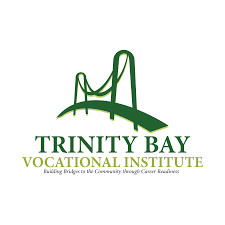- Education Topics
- Achievement Gap
- Alternative Education
- American Education Awards
- Assessment & Evaluation
- Education during COVID-19
- Education Economics
- Education Environment
- Education in the United States during COVID-19
- Education Issues
- Education Policy
- Education Psychology
- Education Scandals and Controversies
- Education Reform
- Education Theory
- Education Worldwide
- Educational Leadership
- Educational Philosophy
- Educational Research
- Educational Technology
- Federal Education Legislation
- Higher Education Worldwide
- Homeless Education
- Homeschooling in the United States
- Migrant Education
- Neglected/Deliquent Students
- Pedagogy
- Sociology of Education
- Special Needs
- National Directories
- After School Programs
- Alternative Schools
- The Arts
- At-Risk Students
- Camps
- Camp Services
- Colleges & Universities
- Counties
- Driving Schools
- Educational Businesses
- Financial Aid
- Higher Education
- International Programs
- Jewish Community Centers
- K-12 Schools
- Language Studies
- Libraries
- Organizations
- Preschools
- Professional Development
- Prom Services
- School Assemblies
- School Districts
- School Field Trips
- School Health
- School Supplies
- School Travel
- School Vendors
- Schools Worldwide
- Special Education
- Special Needs
- Study Abroad
- Teaching Abroad
- Volunteer Programs
- Youth Sports
- For Schools
- Academic Standards
- Assembly Programs
- Blue Ribbon Schools Program
- Educational Accreditation
- Educational Television Channels
- Education in the United States
- History of Education in the United States
- Reading Education in the U.S.
- School Grades
- School Meal Programs
- School Types
- School Uniforms
- Special Education in the United States
- Systems of Formal Education
- U.S. Education Legislation
- For Teachers
- Academic Dishonesty
- Childcare State Licensing Requirements
- Classroom Management
- Education Subjects
- Educational Practices
- Interdisciplinary Teaching
- Job and Interview Tips
- Lesson Plans | Grades
- Professional Development
- State Curriculum Standards
- Substitute Teaching
- Teacher Salary
- Teacher Training Programs
- Teaching Methods
- Training and Certification
- For Students
- Academic Competitions
- Admissions Testing
- At-Risk Students
- Career Planning
- College Admissions
- Drivers License
- Educational Programs
- Educational Television
- High School Dropouts
- Higher Education
- School Health
- Senior Proms
- Sex Education
- Standardized Testing
- Student Financial Aid
- Student Television Stations
- Summer Learning Loss
Trinity Bay Vocational Institute

Basic Information
Sponsor Address: 1002 Gemini St Suit 200N, Houston, TX 77058
Phone Number: 2819847248
Email: info@trinitybayinstitute.org
Coordinator Contact Name: Alfred Mitchell
Additional Information
Accrediting Organization: Trinity Bay Vocational Institute, Inc.
Year Organized: 2018
Districts Covered: Harris, Galveston, Fort Bend and Brazoria
Program Length: 185 hours
Starting Wage: 17.00
Minimum Wage: 15.00
Education Prerequisites:
- Be at least 17 years of age (applicants under the age of 18 must have written permission from a parent or legal guardian to enroll); and
- Present proof of the completion of secondary education (high school diploma from an accredited high school or GED certificate
Physical Requirements:
A student should be at least 17 years old and in good physical condition including good eyesight and not color blind
Exams: There will be 4 exams 2 quizzes, a midterm and a final exam.
Age Limits: 17
Qualifications:
- Be at least 17 years of age (applicants under the age of 18 must have written permission from a parent or legal guardian to enroll); and
- Present proof of the completion of secondary education (high school diploma from an accredited high school or GED certificate)
- Participate in course orientation, held prior to the start of School Term.
Application Process:
The application procees is simple just fill out the application on the website, Once your application is reviewed, you will be contacted by a staff member with a decision on you appliucation, if accepted, you will be instructed on the next step of the process.
Costs/Tuition: $2,500.00
State License/Certification Requirements: School will and accredited institution
Number of Hours on the Job Training: 700
Working Conditions:
The working conditions would depand on the type job you will bw working on.
Work Process Schedule: Work schedule will be determined after class starts
Tasks:
Trinity Bay can prepare for a career in the skilled trades through an apprenticeship program which offer positive growth projections and strong earning portential.
Duties:
Learning will be hands -on - the skilled trades require extensive hands-on-training , You will learn some history and theroy related to the electrical field.
Testing:
There 4 exams, 2 quizzes, a mid term and a final - you will have one quize before the midterm an another quiz before the final exam
Skills:
Be able to read and write profiency along knwing how to read a ruler
Mission Statement:
Mission Statement: Trinity Bay’s mission is the empowerment of the people in a community through its offerings of quality training, incentivization of principled self-discipline, and provision of ethical guidance. Trinity Bay also will serve as a bridge for prospective tradespeople who want to achieve viable, fulfilling, and financially rewarding careers.
Vision: Trinity Bay’s vision is to open its doors to, and offer training for as many prospective tradespeople as possible throughout the United States. Additionally, Trinity Bay’s vision is to serve as “the” source for employers who are seeking to recruit and hire the most competitive, skills-ready craftspeople.
Full Occupation Description:
This course of instruction prepares individuals for entry-level jobs as NCCER technicians. When successfully completing this course and obtaining the electrical basics needed, students will be eligible for immediate hire by construction companies (remodel and new construction), Industrial industries (troubleshooting and maintenance), within Houston and surrounding areas. Students will learn troubleshooting basics for electrical circuits, reading blueprints, repair and installing electrical devices. The course will emphasize more application than theoretical development and will simulate real-world scenarios in the laboratory setting. Trinity Bay Vocational Institute Inc. will also partner with local electrician providers/companies to align the class focus with industry expectations.
Tags: vocational school




